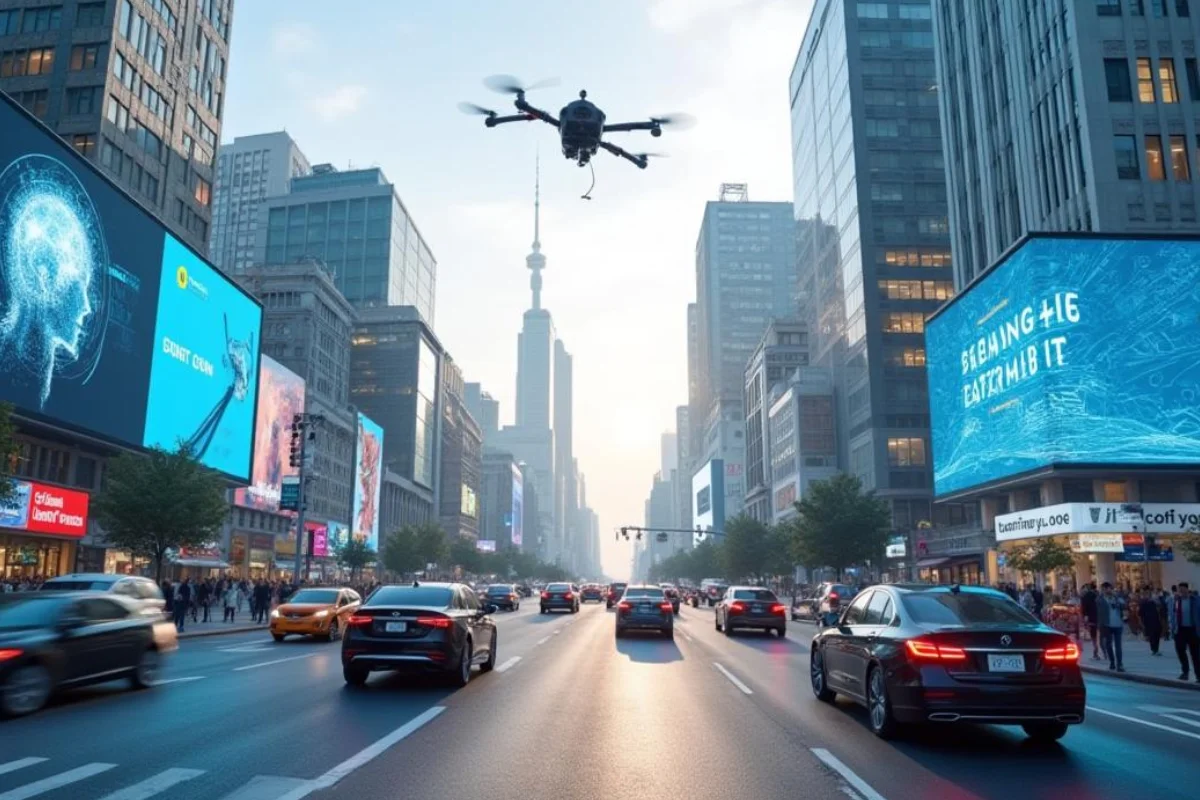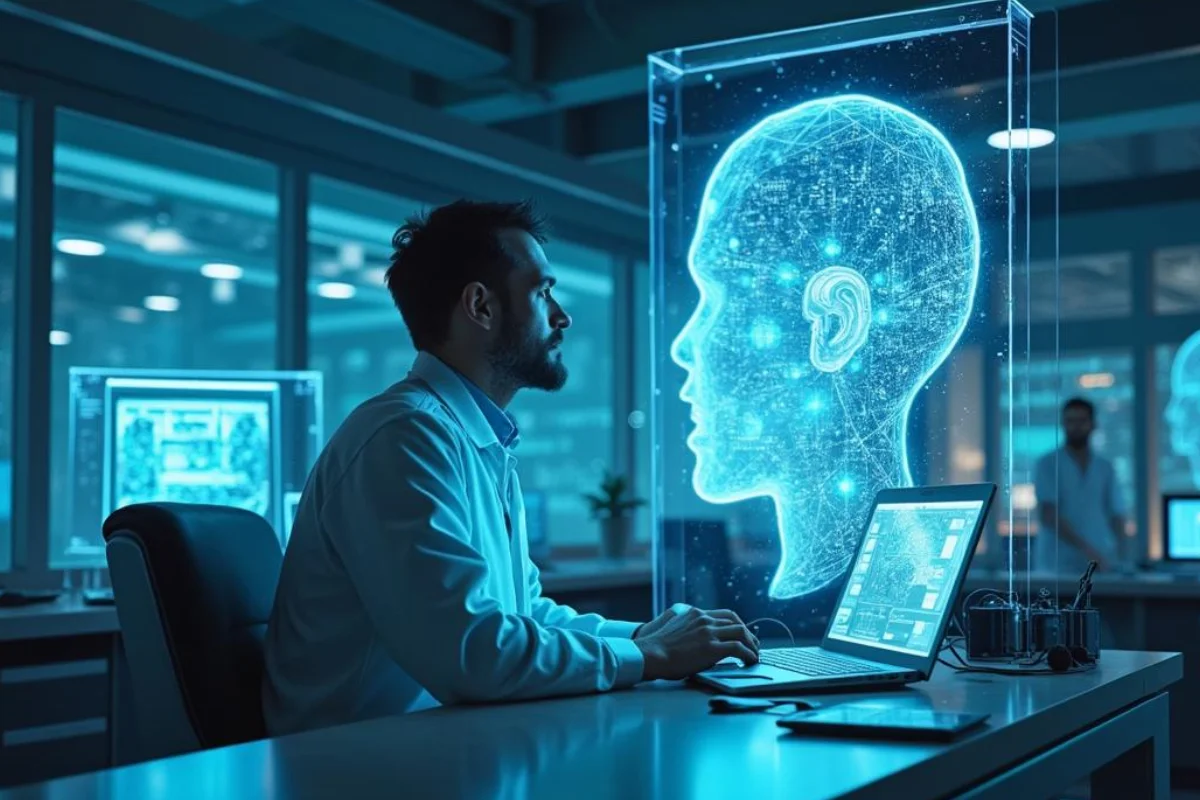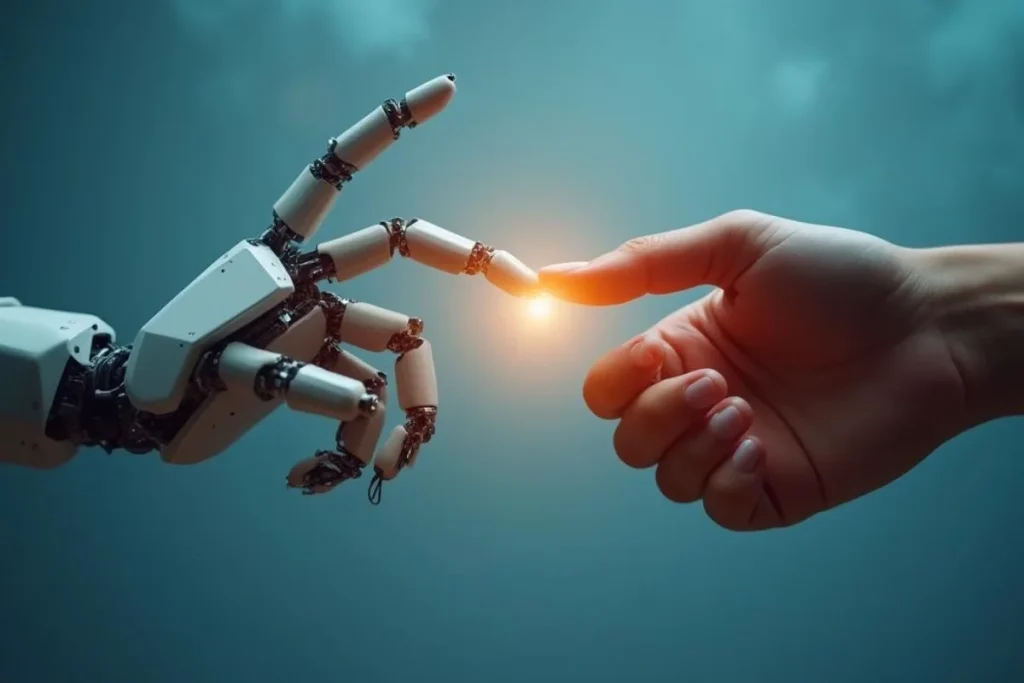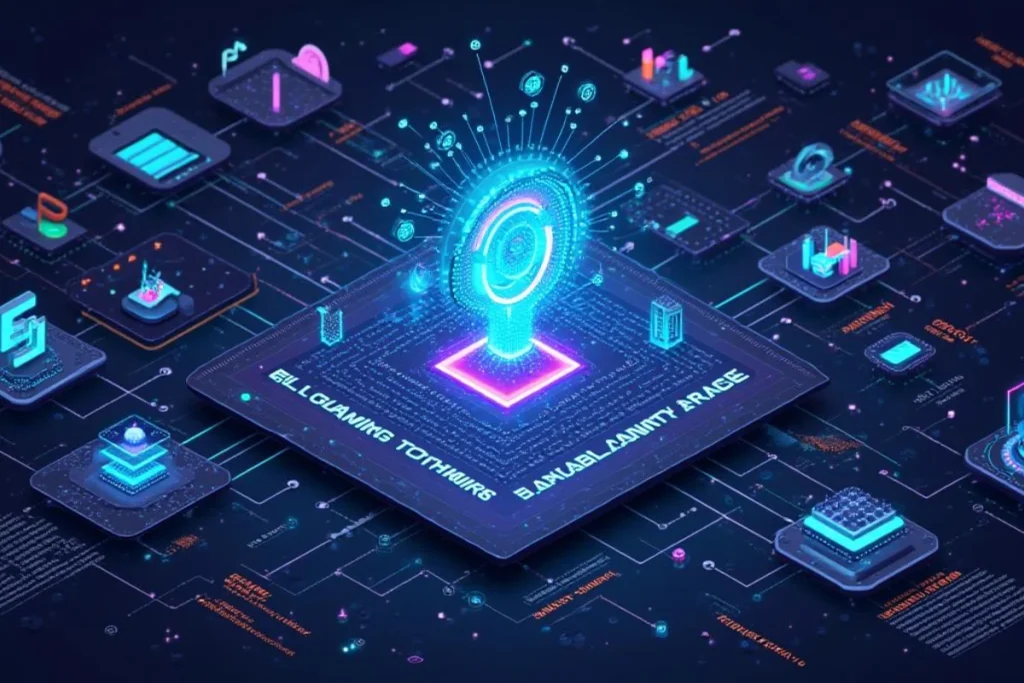AI in Healthcare – Transforming Patient Care
Among the most impactful AI innovations, advancements in healthcare are saving lives and improving patient experiences. AI-driven tools assist in early disease detection, personalized treatments, and efficient hospital management systems.
For example, AI algorithms analyze medical data to identify patterns that even seasoned professionals might miss. These tools enhance diagnostic accuracy and reduce human error, making healthcare more reliable and accessible.
Artificial Intelligence and Smart Cities
Smart cities are becoming a reality thanks to AI innovations. Urban planning and management are now data-driven, enabling cities to optimize resources, reduce traffic congestion, and improve public safety.
AI-powered systems analyze traffic flow, adjust energy consumption, and even predict infrastructure maintenance needs. These advancements enhance the quality of urban life while promoting sustainability.
Education Transformed Through AI
AI is revolutionizing education by personalizing learning experiences for students. Adaptive learning platforms analyze individual performance and adjust content to suit unique learning styles and paces.
Virtual tutors, powered by artificial intelligence, provide instant feedback and support, bridging gaps in traditional education systems. This ensures that students receive a customized and engaging education.
AI Enhancing Workplace Efficiency
Workplace productivity is being redefined through AI innovations. Automation of repetitive tasks allows employees to focus on creative and strategic responsibilities, boosting overall efficiency.
Tools like AI-driven project management software and virtual assistants streamline workflows. These technologies not only save time but also foster a more dynamic and collaborative work environment.

Retail Industry – Personalized Shopping Experiences
AI is transforming the retail industry by creating highly personalized shopping experiences. Algorithms analyze customer behavior to recommend products, offer dynamic pricing, and optimize inventory management.
Virtual try-on tools and chatbots further enhance the customer journey, making online and in-store shopping more interactive. These cutting-edge technologies are reshaping consumer expectations.
AI in Entertainment – Smarter Content Creation
The entertainment industry is embracing AI innovations to create and distribute content more efficiently. AI tools assist in scriptwriting, video editing, and even generating realistic graphics for movies and games.
Streaming platforms use AI algorithms to recommend personalized content based on viewing history. This not only enhances the user experience but also increases viewer engagement.
Transportation Revolutionized by Artificial Intelligence
AI is at the heart of the transportation revolution, with innovations such as autonomous vehicles and traffic management systems. Self-driving cars use AI to navigate, ensuring safer and more efficient travel.
Additionally, AI-driven logistics platforms optimize delivery routes and fleet management. These advancements are not only reducing costs but also contributing to environmental sustainability.
AI in Finance – Smarter Investments
The financial industry has adopted AI innovations to enhance decision-making and security. AI tools analyze market trends, predict stock movements, and identify investment opportunities with precision.
Fraud detection systems powered by AI monitor transactions in real-time, flagging suspicious activities. These technologies are reshaping the financial landscape, offering both businesses and individuals greater control over their finances.

Artificial Intelligence and Climate Change Solutions
AI is playing a vital role in combating climate change. Advanced algorithms analyze environmental data to predict weather patterns, monitor deforestation, and optimize renewable energy systems.
AI-powered tools are also helping businesses reduce their carbon footprint by identifying inefficiencies in production processes. These efforts are critical in creating a more sustainable future.
The Ethical Challenges of AI Innovations
While AI innovations bring numerous benefits, they also pose ethical challenges. Issues such as bias in algorithms, data privacy concerns, and the potential for misuse are areas that require attention.
Policymakers and developers are working to establish frameworks that ensure AI is used responsibly. Transparent systems and ethical guidelines are essential for building trust in this transformative technology.
Conclusion
The impact of AI innovations on life is undeniable. From transforming healthcare and education to addressing global challenges like climate change, AI is revolutionizing how we live and work. As we embrace this technology, addressing ethical concerns and ensuring equitable access will be critical to its success.
Frequently Asked Questions
- What are AI innovations?
- AI innovations refer to new applications and advancements in artificial intelligence that improve efficiency and solve complex problems.
- How is AI transforming daily life?
- AI is enhancing healthcare, education, finance, and entertainment, making processes more efficient and experiences more personalized.
- Which industries benefit the most from AI?
- Industries like healthcare, transportation, finance, retail, and energy are seeing the most significant benefits from AI innovations.
- How does AI help in healthcare?
- AI assists in early disease detection, personalized treatments, and efficient hospital management, improving overall patient care.
- What is the role of AI in education?
- AI personalizes learning experiences, provides virtual tutoring, and helps educators analyze student performance more effectively.
- Can AI address climate change?
- Yes, AI can analyze environmental data, optimize renewable energy systems, and monitor deforestation to combat climate change.
- What ethical challenges does AI face?
- AI faces challenges such as bias in algorithms, data privacy concerns, and the potential for misuse, requiring strict ethical frameworks.
- How is AI used in the retail industry?
- AI analyzes customer behavior, offers product recommendations, and optimizes inventory management to create personalized shopping experiences.
- Are there risks associated with AI in finance?
- While AI improves investment strategies and fraud detection, risks include reliance on inaccurate algorithms and potential data breaches.
- How can AI improve urban living?
- AI powers smart city solutions, including traffic management, energy efficiency, and public safety enhancements, improving urban life quality.



